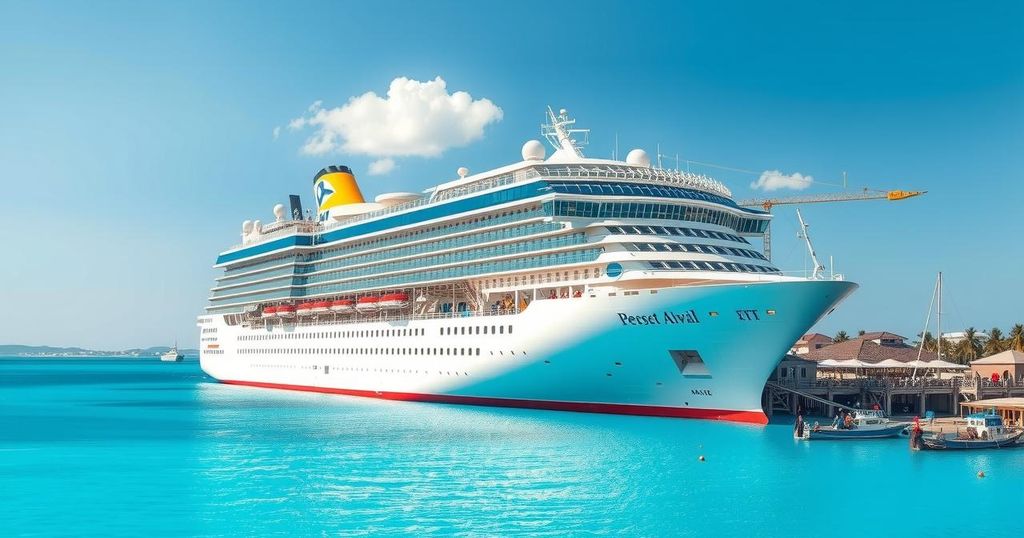Lifestyle
AFRICA, BAFFUO, ELLIOT KORANTENG TANNOR, GHANA, GOVERNMENT POLICY, HEALTH, HEALTHCARE, JOYCE, JOYCELYN KYEI - BAFFUOR, KWAME NKRUMAH UNIVERSITY OF SCIENCE, KWAME NKRUMAH UNIVERSITY OF SCIENCE AND TECHNOLOGY SCHOOL OF MEDICAL SCIENCES, LEADERSHIP, MENTAL HEALTH, PUBLIC HEALTH
Jamal Robinson
0 Comments
Chronic Kidney Disease in Ghana: Addressing Treatment Challenges and Promoting Prevention Tips
Chronic kidney disease is a growing health issue in Ghana, particularly affecting young adults who face financial barriers to treatment. Diabetes and hypertension are significant contributors to CKD cases. Public hospitals provide subsidized care, but demand often exceeds availability. The government must focus on awareness and prevention strategies to mitigate risk factors. Recent changes in dialysis funding highlight ongoing healthcare challenges in the country.
Chronic kidney disease (CKD) represents a significant health crisis globally, with Ghana experiencing a notable rise in cases, particularly among young individuals. Many affected patients are unable to manage the substantial financial burden associated with treatments, especially dialysis—a crucial intervention for those with kidney failure.
According to Dr. Elliot Koranteng Tannor, a nephrologist and Senior Lecturer at the Kwame Nkrumah University of Science and Technology, both diabetes and hypertension are leading contributors to this troubling increase in CKD cases. He emphasized that non-communicable diseases have surpassed infectious diseases as the primary causes of mortality in Ghana.
Dr. Tannor noted that approximately 25% of adults aged 18 and above experience hypertension, with significantly higher occurrences in certain areas. He urged the public to reduce their salt intake, as excessive consumption exacerbates hypertension, and advised incorporating daily activities into a fitness regime.
Furthermore, he expressed concern regarding youth usage of aphrodisiacs, warning of their detrimental effects on kidney health, and explained the potential consequences of such consumption. He highlighted the risks associated with lifestyle choices that disregard health.
Despite some public hospitals providing subsidized dialysis, facilities often face an overwhelming demand. In 2023, public outcry resulted from a significant increase in the cost of renal dialysis at the Korle-Bu Teaching Hospital, prompting authorities to reconsider the price hike.
In December 2024, a program was announced to offer free dialysis treatment, backed by the National Health Insurance Authority (NHIA), covering 40 healthcare institutions. Nevertheless, the current Health Minister, Kwabena Mintah Akandoh, revealed that this initiative is suspended due to financial constraints, refuting the possibility of continuing the free service beyond its funding expiration.
As Ghana observes World Kidney Day under the theme “Are your kidneys okay?”, it is imperative for the government to prioritize kidney health. This includes implementing public health campaigns and establishing proactive screening programs to combat risk factors such as hypertension and diabetes. By improving access to affordable healthcare through initiatives like “Mahama Cares,” Ghana can better address the growing incidence of chronic kidney disease.
Chronic kidney disease is a rising health concern in Ghana, primarily driven by diabetes and hypertension among the youth. With the high costs of treatment, particularly dialysis, the government must intensify awareness campaigns and health initiatives to address these risk factors and enhance early detection. The suspension of free dialysis treatment further underscores the urgent need for policy reform and increased healthcare accessibility to improve outcomes for affected individuals.
Original Source: www.ghanaweb.com




Post Comment